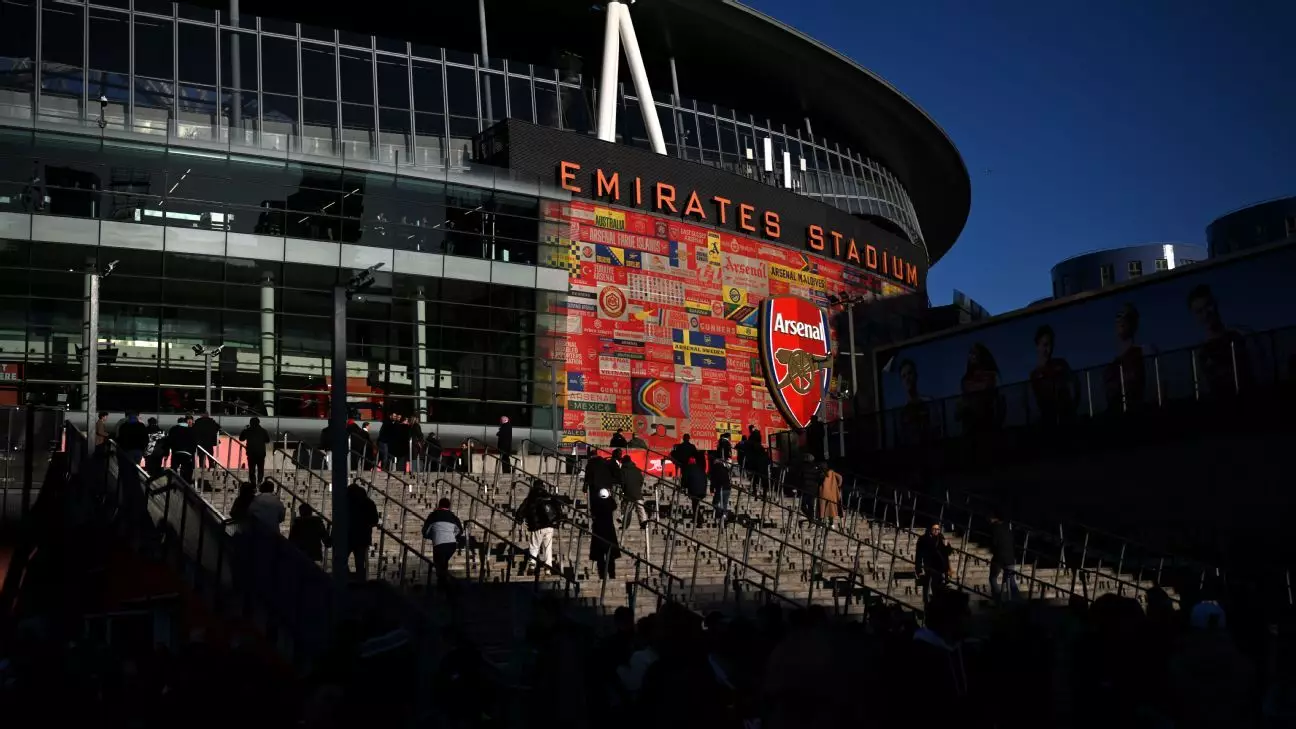Arsenal Football Club recently shared its financial results for the year concluding on May 31, 2024, revealing a loss of £17.7 million ($22.3 million). Despite this setback, the club reported an impressive revenue of £616.6 million, a significant rise from the previous year’s £466.7 million. The uptick was buoyed by a commendable £52.4 million amassed from player transactions, which played a pivotal role in the overall financial health of the club. This rise in revenue is particularly noteworthy given the backdrop of Arsenal’s return to the Champions League after a six-year absence, culminating in a quarterfinal exit against Bayern Munich, with a narrow aggregate loss of 3-2.
Mikel Arteta and his team made substantial investments in player acquisitions during this fiscal period. Notable signings included Declan Rice from West Ham for a staggering fee of up to £105 million, alongside Kai Havertz and Jurriën Timber for £67.5 million and an initial fee of £38 million, respectively. These financial commitments highlight the club’s ambition to rebuild and compete at the highest level, especially after a lengthy period without Champions League football.
On the flip side, significant departures from the squad, including Folarin Balogun to Monaco for around £35 million and Granit Xhaka to Bayer Leverkusen for £21.4 million, underscored the balancing act that most clubs face under UEFA’s Financial Fair Play (FFP) regulations and the Premier League’s Profit and Sustainability Rules (PSR). These financial regulations have reportedly created a challenging environment for clubs aiming to maximize their budgets, placing additional pressure on Arsenal’s transfer strategy.
Amidst the backdrop of increasing revenues, Arsenal also saw its wage bill balloon from £234.8 million to £327.8 million. This steep increase raises questions about the club’s long-term financial sustainability. While higher wages are often indicative of increased talent acquisition, they also place downward pressure on profit margins. With the Premier League confirming compliance from all clubs regarding PSR, Arsenal’s challenge lies in aligning its expenditure with sustainable financial practices while maintaining a competitive squad.
Despite a reasonable net spend of around £13 million during the previous summer’s transfer window, Arsenal faced criticism for their decision not to secure a striker. Their efforts to recruit Ollie Watkins from Aston Villa were thwarted by a rejected £40 million bid, which the club deemed excessive against the player’s £60 million valuation. Moreover, the sales of academy products, including Eddie Nketiah and Emile Smith Rowe, which counted as pure profit in PSR terms, illustrate a strategic shift toward maximizing asset utilization within financial constraints.
While Arsenal’s revenue streams are expanding, the financial landscape they navigate is complex and challenging. The club must continue to strike a balance between investing in talent and adhering to financial regulations. As the team aims for success both on and off the pitch, the upcoming seasons will be pivotal in shaping Arsenal’s financial future and competitive standing.

Leave a Reply